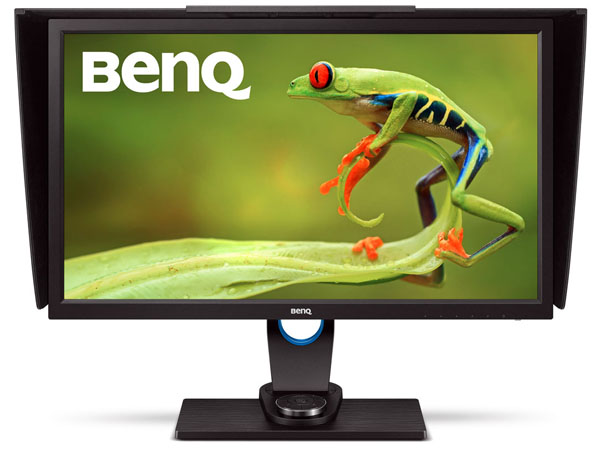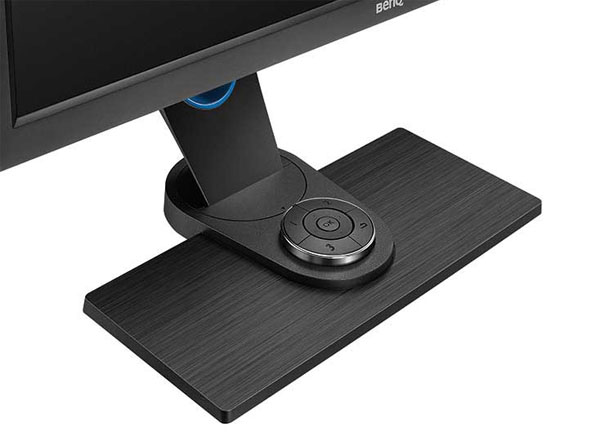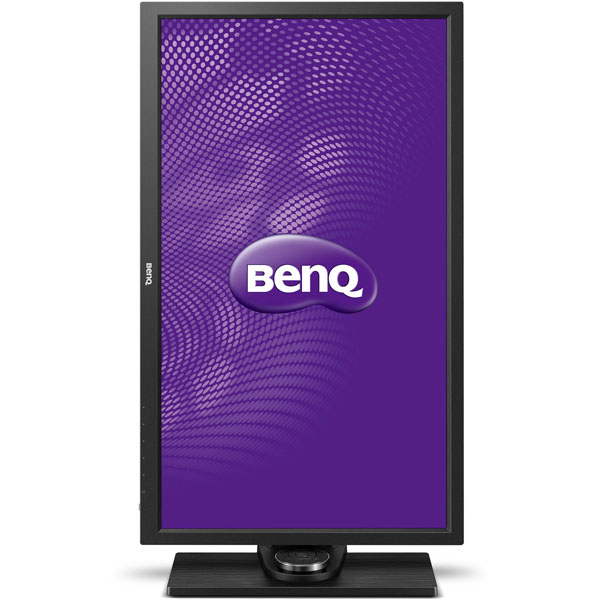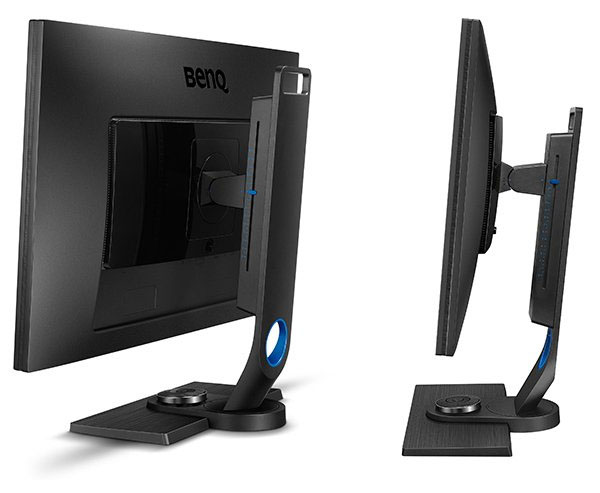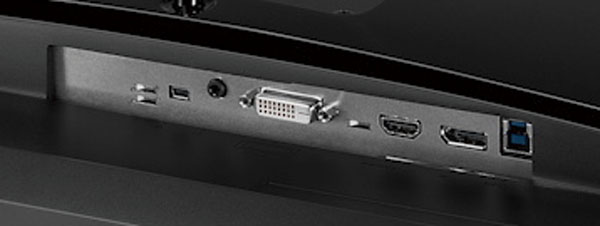BenQ SW2700PT 27-inch QHD Pro Monitor Review
If you need the ultimate in color accuracy, BenQ can deliver with its 27-inch SW2700PT. Professionals seeking a precise QHD resolution screen may rejoice when they see its low price. Today we check it out in our labs.
Why you can trust Tom's Hardware
Packaging, Physical Layout & Accessories
The SW2700PT is well-protected from the rigors of shipping by plenty of dense foam in an oversized box. The rigid plastic hood is boxed separately and wrapped in plastic to prevent scratches. It assembles by snapping onto lugs already attached to the panel’s bezel. Screwing on the base and adding the upright completes the package.
Bundled cables include an IEC power cord, DisplayPort, DVI, and USB 3.0. You also get an OSD controller that connects via mini-USB. A CD-ROM contains the user manual and drivers. BenQ’s Palette Master calibration software is available via download. We’ll show you more about that on page three.
Product 360
The monitor is simply-styled with no accents save a small BenQ logo at the bottom-center of the bezel. The screen border is suitably thin and finished in a light-absorbing matte black. Control buttons are underneath as is the power LED which glows white during power-on and orange in standby mode. You won’t be using the buttons much since this display includes an intuitive controller in the form of a small puck. It fits into a nest at the base or you can move it around the desktop.
The anti-glare layer is quite aggressive but doesn’t impart any grain or softness on the image. It rejects light better than most display’s we’ve seen and can be used outdoors with good success. That functionality is enhanced by the included rigid hood which is easily attached or removed without tools.
Here is the OSD controller which we’ve seen on several other BenQ monitors. The outer keys can be programmed for a variety of functions. In the center is a navigation circle with a select button at the center. Once you get the hang of it, moving through the on-screen menus is quick and easy. You can’t see the cord in this photo but there is a short tether that allows the puck to be placed up to 18 inches from the base.
BenQ always provides a quality stand with its products. This one has an aluminum core with plastic trim. It’s adjustable for height, swivel and tilt; and includes a portrait mode. It’s extremely solid and firm in all movements. From the side you’ll see a height indicator that features a moveable pointer. That way you can always return the SW2700PT to a pre-determined position.
Here’s a better shot of the height indicator. The panel is reasonably slim with a large flat area housing a 100mm VESA mount. Ventilation is minimal but we never noticed excessive heat when using the SW2700PT for long periods. On the left edge (not shown) are two USB 3.0 downstream ports and an SD card reader.
Get Tom's Hardware's best news and in-depth reviews, straight to your inbox.
Inputs are all-digital and include one each of DVI, DisplayPort 1.2 and HDMI 1.4. The analog audio jack is for headphones; there are no speakers built in. On the far left you can see a mini-USB port for the OSD controller. At the right is the USB 3.0 upstream connection.
Current page: Packaging, Physical Layout & Accessories
Prev Page Introduction Next Page OSD Setup & Calibration
Christian Eberle is a Contributing Editor for Tom's Hardware US. He's a veteran reviewer of A/V equipment, specializing in monitors. Christian began his obsession with tech when he built his first PC in 1991, a 286 running DOS 3.0 at a blazing 12MHz. In 2006, he undertook training from the Imaging Science Foundation in video calibration and testing and thus started a passion for precise imaging that persists to this day. He is also a professional musician with a degree from the New England Conservatory as a classical bassoonist which he used to good effect as a performer with the West Point Army Band from 1987 to 2013. He enjoys watching movies and listening to high-end audio in his custom-built home theater and can be seen riding trails near his home on a race-ready ICE VTX recumbent trike. Christian enjoys the endless summer in Florida where he lives with his wife and Chihuahua and plays with orchestras around the state.
-
muhammad_88 Pretty Neat for 630$Reply
I Work in Offset Printing, and i'm considering this as a proofing monitor.
The acceptable brightness range for this scenario is 80 cd/m2 to 120 cd/m2
For the white point 5000K/D50 and 5500K/D55 are commonly used in CMYK reproduction. For a reference class monitor i hope you start adding these to your reviews for people like myself considering monitors for print proofing -
zodiacfml Wow. AHVA screens are awesome. I'm quite surprised with the lower than expected contrast ratio compared to the Philips 40inch screen with AHVA panel.Reply
This one ticks all my boxes though I wish it could come with 120hz refresh rate. -
ceberle The Philips BDM4065UC is an AMVA panel. This is not the same as AHVA. It's confusing but AHVA is an IPS variant. It has better viewing angles but no difference in contrast. AMVA is a completely different pixel structure which blocks the backlight better and renders lower black levels resulting in superior contrast.Reply
-Christian- -
drewafx Bought it after reading this review.Reply
Definitely better than Dell ultrasharp 27"
Anti-glare is different than typical LG matte ips panel (Better view when looking straight, noise pattern from angle)
Love the color even at sRGB mode. Factory calibration brightness at 93 (too bright at night...need to buy calibrator)
Hence Max brightness at 100 is not that bright (more brightness would be good for HDR)
Backlight Flicker-free is noticeable when changing brightness (smooth transition)
Slight backlight bleed (yellowish around corners)
Doesn't matter when editing photos at center, just bothersome when watching movies with dark scenes
No ghosting, 75Hz tested fine (custom resolution from gpu)
miniDP to DisplayPort cable included, but monitor doesn't have miniDP port
DisplayPort to DisplayPort cable is necessary to work with 10-bit desktop GPU (in my case)
Low blue light mode is subtle and works well
if OLED is not an option, this monitor is good enough for anything
maybe next year...I'm waiting for AMD to release 10bit HDR GPU
so the AdobeRGB space would be more useful...
4K 144hz freesync is overrated...if you care more about vibrant accurate color
I'm wondering how good it could be if BenQ released glossy display like Apple's iMac and Cinema Display
Come on, we got light hood to cover reflections...no need for anti-glare coating
Do Smartphones come with antiglare coating? Not needed even outdoors....just ruins the experience
